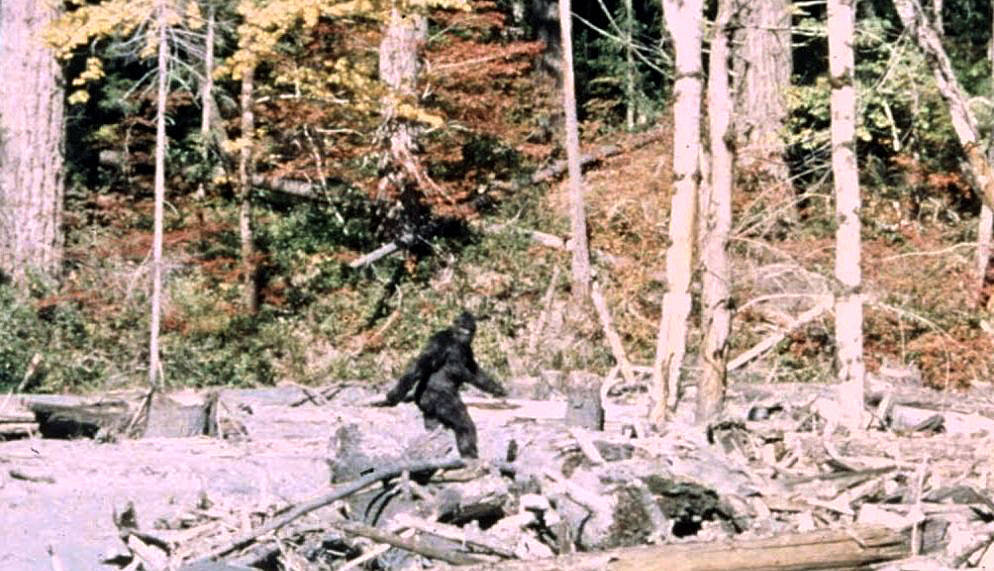cross-posted from: https://hexbear.net/post/887096
I mean anything like cursed or lucky objects, ghosts, etc?
Figured it’s the spooky season and I don’t know too many people irl to talk to about the supernatural without discovering q-level brainworms.
I’ll comment in the thread with my answer.
No, but sometimes I wish I did.
i wish i did, life would be more fun with some magic to it
I like to believe in good luck charms (4 leaf clovers I find, rabbits feet, and coins head up) even though deep down I know they don’t work. I also like to entertain things like worry dolls and dream catchers. Although once again I don’t believe they work. But it’s something I grew up with and think it’s a whimsical idea to pass to my kids, regardless.
Sometimes it’s good to just have a template for thinking about abstract things. If you can conceptualize something like dreams as having a tangible form, even as just a thought experiment, it helps to better understand them than not think about it at all.
It’s a good mental place holder, if that makes sense.
Serious answer: no
I’m gonna use a specific case to comment on magic as a whole: baseball magic.
If you don’t know, that’s basically a catch-all term for the seemingly random things that many baseball players do, especially when they’re pitching or batting. Stuff like taking your hat off and putting it back on again, clearing out your previous footsteps from the pitcher’s mound to make it “fresh”, doing a very specific number of practice swings before stepping into the box - none of this stuff has any obvious impact on player performance, and yet we know from studying them that the rituals themselves do impact player performance in a big way. Players who perform better tend to have more rituals than ones who don’t, and if a player’s rituals are interrupted their performance is measurably worse.
It isn’t just baseball players either. Tennis players might bounce the ball a specific number of times before a serve, top-level Starcraft players have rituals like measuring the distance between their body and their keyboard or eating a piece of dark chocolate right at the start of a game. Some of these rituals may have a “logical” explanation behind them, but something funny about the practices as a whole is that both the logical and illogical ones seem to have the same effects.
Research into this stuff essentially shows that these behaviors are a coping mechanism. People do them more when the outcome of a competition is uncertain or important, they do them more when they have more to lose, etc. Players who do them report lower stress after performing then, lower stress is correlated to better focus and performance, etc. Now we start to see why these little rituals that don’t have an obvious impact on performance can actually have a very large impact on it by influencing a players’ mental state.
So I think that magic (and religion but let’s not get into it) is essentially that. Speaking an incantation might not literally make the rains come, but if you’re in a community whose life revolves around the rainy season there’s a tremendous utility to doing it anyway, or getting everyone together to dance until they come, or whatever your cultural practice is. Tarot cards won’t literally tell the future, but how you interpret them is a reflection of your own mental state and the thoughts you want to emphasize, and it may assuage your stress over the things you can’t control in your life, bringing genuine benefit anyway.
So is magic real? It’s real enough if you believe in it, now if only we could figure out a way to get the grifters out of the space.
I played baseball and now I do santería maybe there’s a correlation there, are there grifters in magick spaces? Yes but there grifters everywhere. Just like there’s shitty people everywhere who take advantage of others in religion you will also find that in these spaces.
Pre game rituals are a real thing and even though I know logically they have no impact, they definitely help to settle the nerves, to perform a set routine before doing something important.
I personally believe that magic and the supernatural are just a means of explaining something that defies explanation. Whether it’s something that we just have a hard time wrapping our heads around, or a phenomenon that we don’t have the tools to explain yet. Over time we gained the ability to really explain stuff, but these practices have been held onto and passed down for so long that they don’t just go away.
I don’t believe in magic or the supernatural on a logical level. That said, I do believe there are aspects of our experiences that just defy our understanding.
Do I believe? No.
Still… I’ve seen a few things that defy explanation.
I’m an anti-reductionist, but I don’t think that “higher level” or emergent features of the world can properly be called “magic.” While a purely physical description doesn’t exhaust the interesting facts (and predictively useful patterns), any real pattern does need to be consistent with what physics tells us about the world. In other words, you should be able to redescribe any event in the language of fundamental physics and still get a consistent “story,” even if there’s some information lost by neglecting the higher level patterns in how a given system changes over time. True magic in the interesting sense seems to me to imply things happening outside the purview of physics, in that it would describe events/patterns/forces that operate as ad hoc exceptions to physical law. I don’t think we live in a world like that.
deleted by creator
Magic to me is an imprecise term because before the “enlightenment” magic was used as an umbrella term for natural philosophy (science not yet partitioned from religious/occult practices or the “liberal arts”), mathematics (arithmetic, algebra, geometry), chemistry (not yet distinguished from alchemy). The 14th century definition of magic was “art of influencing or predicting events and producing marvels using hidden natural forces.” Key word natural forces. Nothing supernatural necessarily implied. To date a tree using its rings is “magic” by this definition. To draw a line graph using existing data points and predict future trends using that data is “magic” by this definition. Calculating interest on a loan is “magic” by this definition. Brewing alcohol is “magic” by this definition. In fact, the loosest definition of the word “science” is also in line with this really loose definition of “magic”. When Engels wrote “Socialism: Utopian and Scientific” it’s important to remember that he was writing in 19th century German. And in Germany, in the 19th century, the word “Wissenschaft” (science) still encompassed the humanities, as well as the “hard” sciences. The borders between science, magic, and the humanities were much blurrier in the past. You can still see echoes of this sentiment in the Arthur Clarke quote “Any sufficiently advanced technology will be indistinguishable from magic” as well as the way some people seem baffled by the powers of LLMs and neural networks. But today if you mean purely supernatural phenomena, then no, I don’t believe in the supernatural because I think the supernatural is a contradiction in terms. Every time we discover something new that was outside of our previous idea of what is possible (general relativity and quantum physics are entirely outside of the Newtonian conception of physics that reigned from the 1600s to the early 1900s) we simply incorporate that new discovery into our understanding of what is natural, rather than ascribing supernatural qualities to it. What are the actual qualifiers for what is supposed to be supernatural? Something without an explanation? Something not made of matter or energy?
 you did the leftist “nuances of the word wissenshaft” meme
you did the leftist “nuances of the word wissenshaft” meme 
we simply incorporate that new discovery into our understanding of what is natural, rather than ascribing supernatural qualities to it
this is an excellent point though
you did the leftist “nuances of the word wissenshaft” mem
1000 years gulag for me
I don’t actually believe in the supernatural, but I do wish it existed and occasionally pretend it exists.
I get bullied a lot on hexbear.lib for this opinion but yes.
I generally follow a Jungian idea of magic. Are these archetypes just part of the human mind or are they some sort of eternal structure that existed before humanity and will exist long afterward? I think the question is meaningless. Look up at the sky, does Apollo drive the sun across the sky, or is it a product of nuclear fusion sending electromagnetic radiation to the Earth? Science would rightfully say the latter. But is the fact that it can be explained by a careful physical dance of atoms make the sun any less of a god?
It still brings warmth, light, and allows all life to exist on this earth. Does the fact that its not some human intelligence make it any less worthy of worship? Why does reincarnation necessitate an eternal soul? Every idea and experience that makes up me will eventually re-form into a different human, perhaps it already has and I’m just the nth such combination.
There is still just as much magic and god in the world as there was 6000 years ago. People just think that because it’s not some conscious human-level intelligence its no longer divine.
‘magic’ as dnd style wizards casting fireballs, no.
‘magic’ as rejection of the utility of science/physical evidence about the world, no.
‘magic’ as goth egirl self-help desire manifestation, no.
‘magic’ as the semiotic interpretation of the physical/literal, or the exploration of the interconnectedness and the more mysterious properties of mind and matter and meaning itself, yes.
i choose to believe in something like an immortal soul because this life is unendurable to me if it is the only one, i do not want to have been this person that i am trapped in. if i am incorrect it will not matter to my corpse’s lack of consciousness, and believing it assuages mortal terror and gives me the possibility that my life means something. i could be here to learn some kind of lesson, or to do something important, whereas under the purest physicalism i am just a meaningless flesh robot twitching along to instinct and predetermined, flawed information processing. under physicalism there is no room for meaning outside of the ephemeral and temporary jolts and spasms of idiot meat computers. we could achieve communism and it wouldn’t matter because its just meat with sticks inside of it moving around on a ball of dirt, our existence is as meaningless as our nonexistence would be. when the sun absorbs us or the universe undergoes heat death it will be as if none of it happened. even spreading to the stars would be no more meaningful than mold spreading to another loaf of bread, just an unthinking pulsating mass blooming and retracting and living and dying for equally lifeless unthinking reasons/forces. an azathothian nightmare. i cannot justify my own continued existence under such a worldview, if i were to somehow find out that pure physicalism was unquestionably correct i would immediately self terminate.
ritual before belief. i think it’s fun & cathartic to participate in ritual practises, especially ones unattached to real institutions (that probably suck). doing a little sacrifice or whatever is not going to beckon supernatural intervention in your affairs, but the practical effects of expressing desires/priorities gives you direction and hanging out with community or friends while you do this is good. i’ll even humor abrahamic stuff as long as its well-meaning and not covenant-y (grace at the table-si, communion-no)
Anything that actually happens is by definition not supernatural. I believe there are things we don’t understand yet and might never understand fully, but that’s because we don’t know enough about the thing in question not because of some exception to cause and effect.










